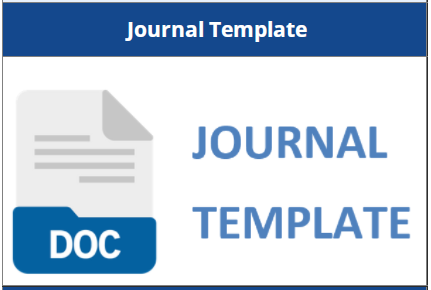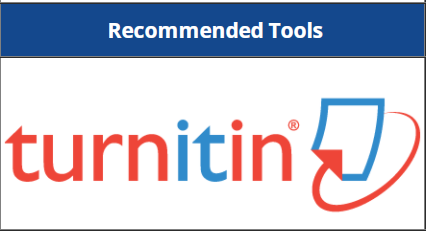KONSEP SMART ENVIRONMENT TERHADAP PENYEDIAAN RUANG TERBUKA HIJAU (STUDI KASUS: KOTA BANDAR LAMPUNG)
Abstract
The concept of smart environment has an embodiment to protect, restore and manage the utilization of terrestrial ecosystems in the form of green open spaces to avoid a decrease in their area in line with the concept of sustainability. The concept of smart environment is supported by the achievement of the 11th sustainable development goal, namely in the pillar of natural resource management including green areas. With the concept of smart environment, green open spaces (GOS) can be fulfilled, especially in Bandar Lampung City by examining important aspects that need to be considered. This study uses qualitative descriptive analysis based on literature studies related to the concept of smart environment in big cities around the world and Indonesia. Then, a comparison is described regarding policies, implementation, and recommendations, especially the provision of GOS. In the end, the findings of the study describe the concept of smart environment as an effort to provide GOS in Bandar Lampung City based on policies that pay attention to economic, social and environmental aspects which produce recommendations in the form of Tree Planting, Socialization and Education from an early age, Cross-Sector Cooperation, Promotion of Biodiversity, Food Security, Development of Blue-Green Infrastructure, and Expansion of the Provision of City Parks.
Downloads
References
[2] Bappeda DKI Jakarta. (2022). Rencana Pembangunan Daerah Provinsi DKI Jakarta Tahun 2023-2026.
[3] City Executive Office Stockholm. (2019). Environment programme 2020-2023.
[4] City of Vancouver. (2015). Greenest City 2020 Action Plan Part Two: 2015-2020.
[5] Dewi, H. K., & Sunarharum, T. M. (2022). Peningkatan Ketahanan Iklim di Kabupaten Magelang: Telaah Kerangka Kebijakan Smart Environment Improving Climate Resilience in Magelang Regency: A Review of the Smart Environment Policy Framework. Jurnal Sinar Manajemen.
[6] DPKP3 Kota Bandung. (2021). Ada Apa Dengan Ruang Terbuka Hijau Kota Bandung? DPKP3 Kota Bandung. https://www.rth.bandung.go.id/
[7] Ebenezer, H. (1965). Garden cities of to-morrow. Рипол Классик.
[8] Hidayah, R., Sativa, S., & H, S. (2021). Strategi Pemenuhan Ruang Terbuka Hijau Publik di Kota Yogyakarta. INERSIA: LNformasi Dan Ekspose Hasil Riset Teknik SIpil Dan Arsitektur, 17(1), 11–18. https://doi.org/10.21831/inersia.v17i1.40765
[9] Kemen Kominfo. (2017). Buku Panduan Masterplan Smart City 2017: Gerakan Menuju 100 Smart City.
[10] Koy, V., & Rodrigues, O. (2019). Developing smart environment at tourism spots in Jetisharjo RW. 07, Yogyakarta. ARTEKS: Jurnal Teknik Arsitektur, 4(1), 25–32.
[11] Kumar, V. (2020). Smart environment for smart cities. Smart Environment for Smart Cities, 1–53.
[12] Pitcher, G. (2007). Hitting the targets: Sustainable Development Goals. New Electronics. 40(22), 33–34.
[13] R Valendya, & Ulhaq Wiedad Diya. (2024). Perspektif Fiqih Al-Bi’ah dalam Implementasi Rencana Tata Ruang Terhadap Ruang Terbuka Hijau di Kota Bandar Lampung.
[14] Rusli, M. (2022). Merancang Penelitian Kualitatif Dasar/Deskriptif dan Studi Kasus.
[15] Sembiring, R. A. (2022). Analisis Aktor Pembangunan dalam Smart Environment Kota Kediri Tahun 2021. Jurnal Ilmiah Ilmu Sosial, 8(1), 88–108. https://doi.org/10.23887/jiis.v8i1.44272
[16] Shilvina Widi. (2022, October 17). Ada 2.566 Ruang Terbuka Hijau di Jakarta pada 2021. DataIndonesia.Id. https://dataindonesia.id/varia/detail/ada-2566-ruang-terbuka-hijau-di-jakarta-pada-2021
[17] Sinatra, F., Azhari, D., Musadri Asbi, A., & Irfan Affandi, M. (2022). Prinsip Pengembangan Ruang Terbuka Hijau Kota Sebagai Infrastruktur Hijau di Kota Bandar Lampung. Jurnal Planologi, 19(1).
[18] Sutriadi, R. (2018). Perencanaan Kota Abad 21: Inovasi dan Tujuan Pembangunan Berkelanjutan. ITB Press.
[19] Wibowo, H. A. (2018). Model Peran Akademisi dalam Mendukung Implementasi Smart City di Kota Serang. Jurnal Kebijakan Pembangunan Daerah, 2(1), 29–42.












